Redtail nest saga in an Emeryville park
By Mary Malec
This is a story where everyone does everything right… almost.
Six or seven years ago I was driving up my street returning home from work and looked up to see a male Red-tailed Hawk flying toward me, rodent in its talon. I pulled over in time to watch it rise up into a grove of eucalyptus and land on the rim of a nest. The female on the nest stood up stiffly, roused, took the rodent, and flew off to a nearby tree. The male looked down into the nest then snuggled down with a tell-tale egg wiggle.
That nest has been successful most years since, fledging one to three young each year. The nest tree is in a pocket park in Oakland on the Emeryville border. Emeryville maintains the park.
Three years ago, a friend sent me a link to a notice on the Facebook page of Raptors are the Solution asking for help from anyone who could attend an Emeryville City Council meeting. The City was scheduled to approve cutting all the trees in the pocket park to make room for a playground directly under the tree where the hawk nested. A biologist had surveyed the area and found no environmental reason not to cut the trees. Somehow he or she had missed the large nest and the limbs covered with hawk droppings.
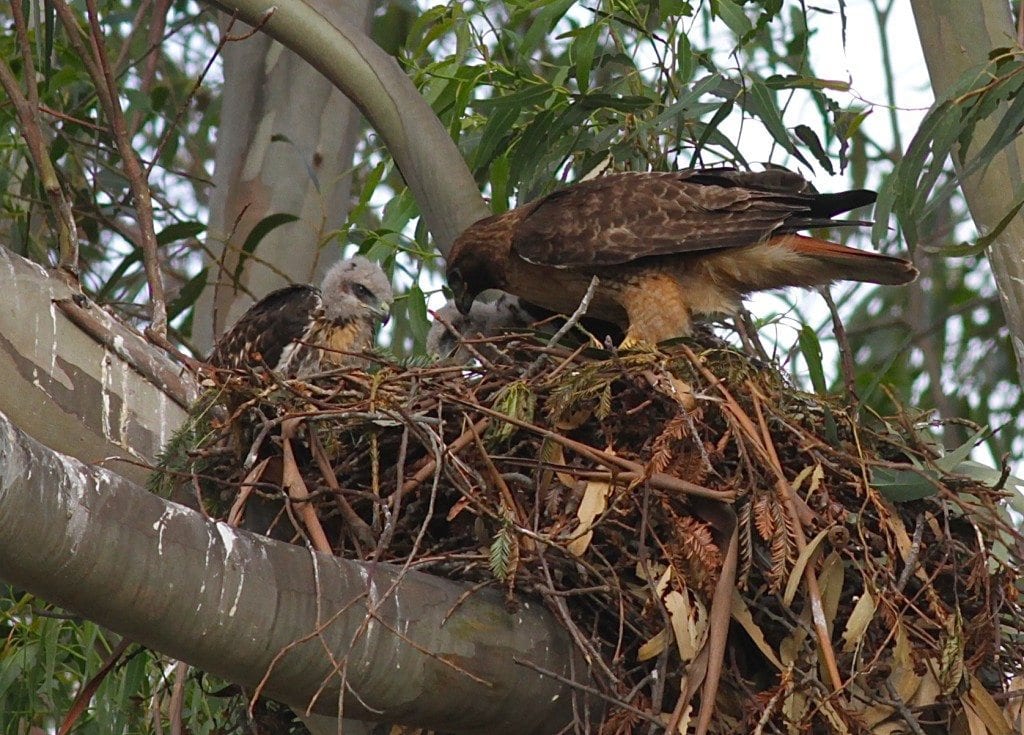
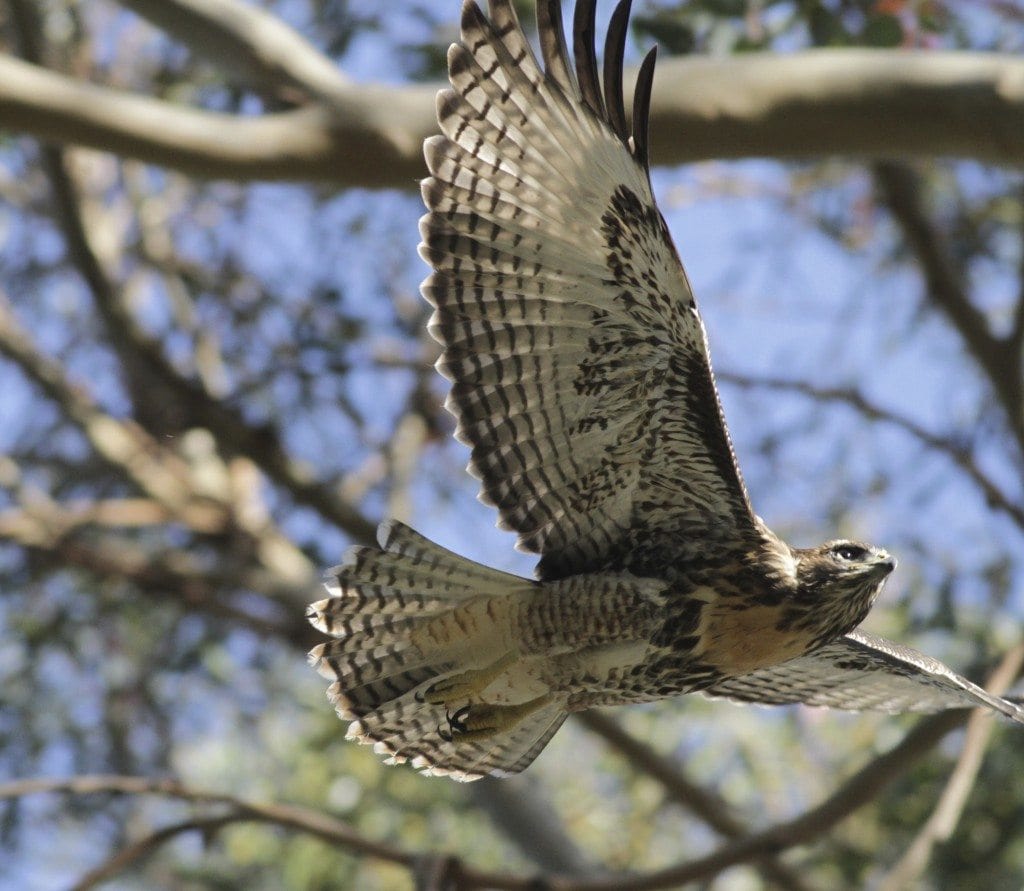
I spent an hour that afternoon selecting and printing and labeling photos I’d taken over the previous several years of the nest, the adults, and each of the nestlings. I put them into a packet and went to the city council meeting. There I was joined by many neighbors of the park, some there to plead for the redtails’ nest tree and others to ask for other changes in the park plans. Some were there to ask that all the eucalyptus be cut to prevent future limb fall, especially in the area where the playground was to be located.
The City Council listened to the public, looked at my photos, and changed their plans.
The trees were severely trimmed and some were stabilized mechanically. Other trees were added to the park so that even if the eucalyptus are cut, there will eventually be mature trees to provide a home for wildlife and a buffer between the park and neighboring houses. A wise decision by the city!
Two weeks ago, I was at the park early in the morning and saw a tree care crew starting work on routine trimming. They had their wood chippers running and were grinding up limbs they had collected from the ground.
But one of this year’s redtail nestlings was still in the nest. The other had fledged the night before and was standing unsteadily in one of the trees slated for trimming.
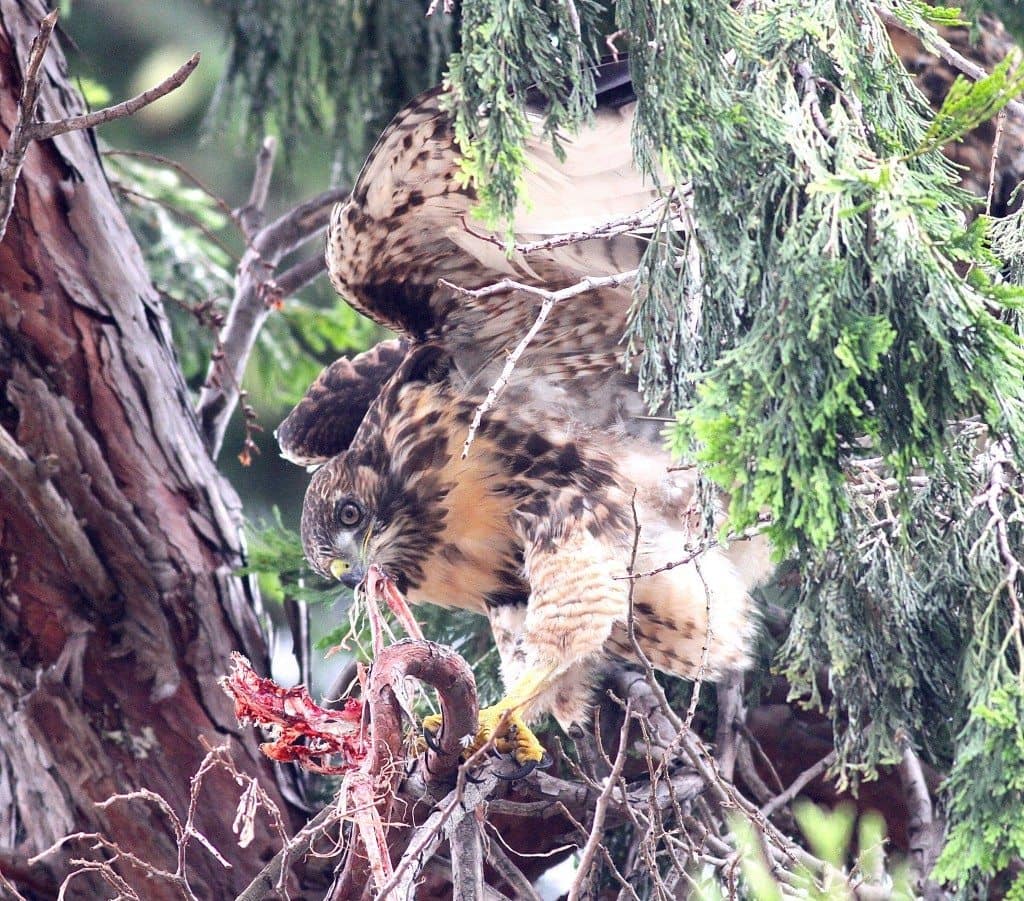
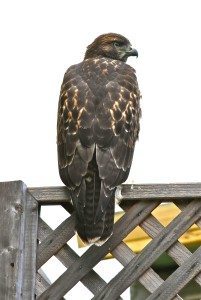
I walked over to talk to the crew. They called the supervisor over and I showed him the hawk nest with the baby standing on the nest rim. I showed him the fledgling. He said very little but walked around to look at the trees.
I checked back in with the crew an hour later. The supervisor had left to go look at other jobs so they could re-schedule the work. The crew finished grinding the downed tree limbs and packed up to go to other jobs — leaving the hawk fledglings alone.
I emailed the supervisor for Emeryville’s maintenance crew to let him know that it would be safe to resume tree work in a few weeks. I asked him to thank the supervisor of the tree trimming crew. The company that was so responsive to the needs of the hawks is West Coast Arborists, which handles tree-trimming for local governments.
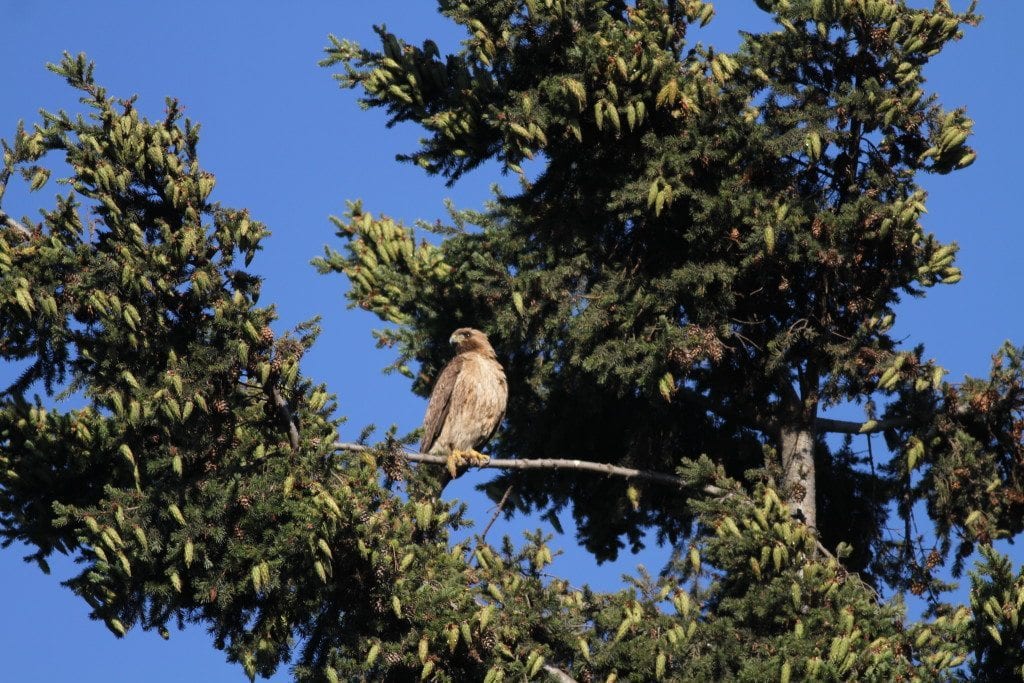
When I wrote this blog post, I framed it as a story where – for once – everyone does everything right. Thoughtful city officials, nature-loving residents, a responsible tree care company…. I’m so grateful to live in an area where there can be a balanced and reasoned response to the needs of the public and to the needs of wildlife.
Yet shortly after I finished the story, there was a less happy epilogue.
Two weeks after the babies fledged and seemed to be doing well, I got a call from a neighbor about a juvenile hawk sitting on the ground near the children’s playground. She was picked up and taken to Lindsay Wildlife Center, where she was found to be emaciated and severely dehydrated. Her blood was the color of pink lemonade. Lab tests showed her organs were shutting down. Although she was not necropsied, the conclusion was that she had been exposed to chemical poisoning, probably rodenticides.
I was devastated by the death of this baby I’d watched for several months, and the shaky future of the adults that have been my neighbors for so many years.
We will be posting flyers from Raptors Are The Solution informing neighbors that there are nesting raptors in the park, and explaining the dangers of rat poison for raptors as well as for pets and children. We lost a juvenile this year, but it is critical to protect the adults’ safety for future breeding years.
Building on the good will shown to these red tails around tree trimming, I hope we can protect them from rodenticides too.
——————————-
Mary Malec is starting her 11th year as a volunteer with Golden Gate Raptor Observatory, counting and identifying migrating raptors. She has monitored raptor nests in the Bay Area for nine years.
